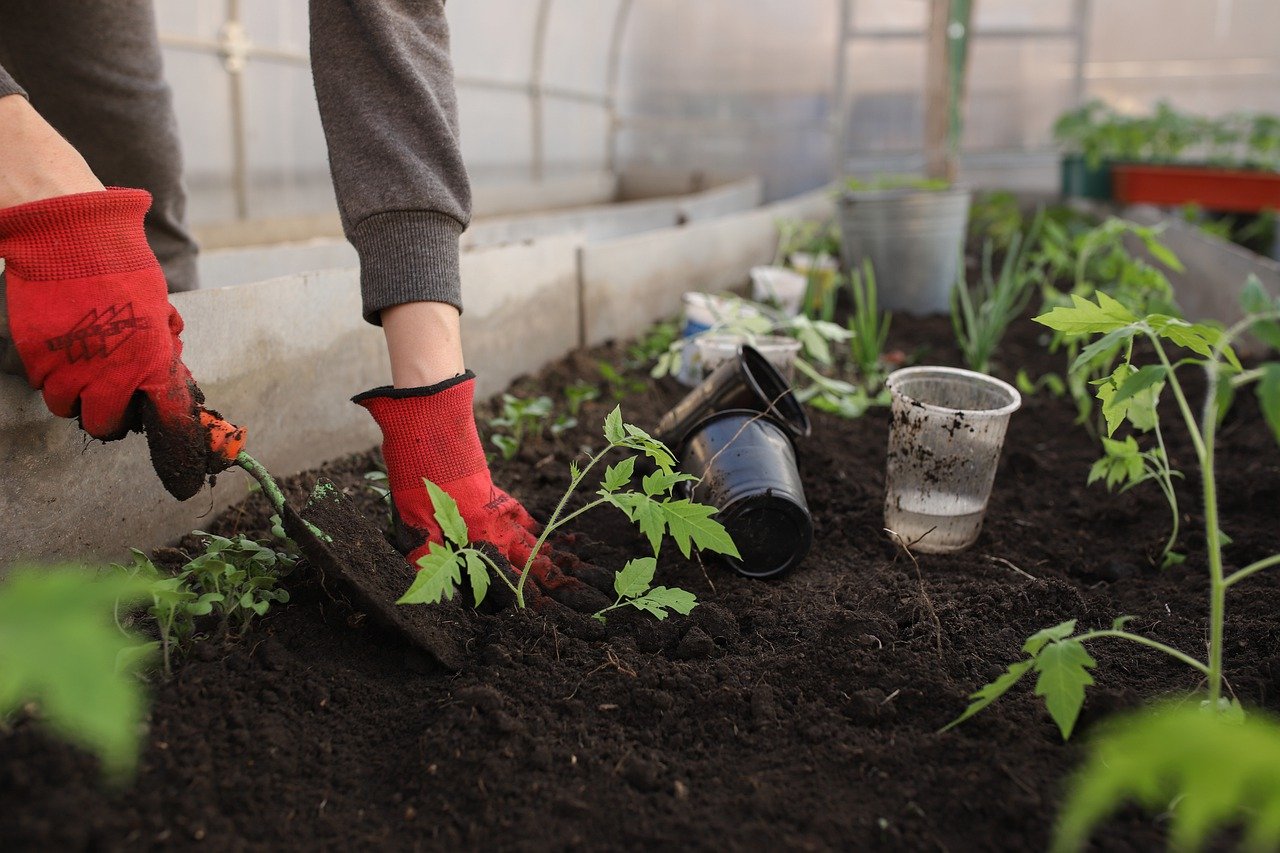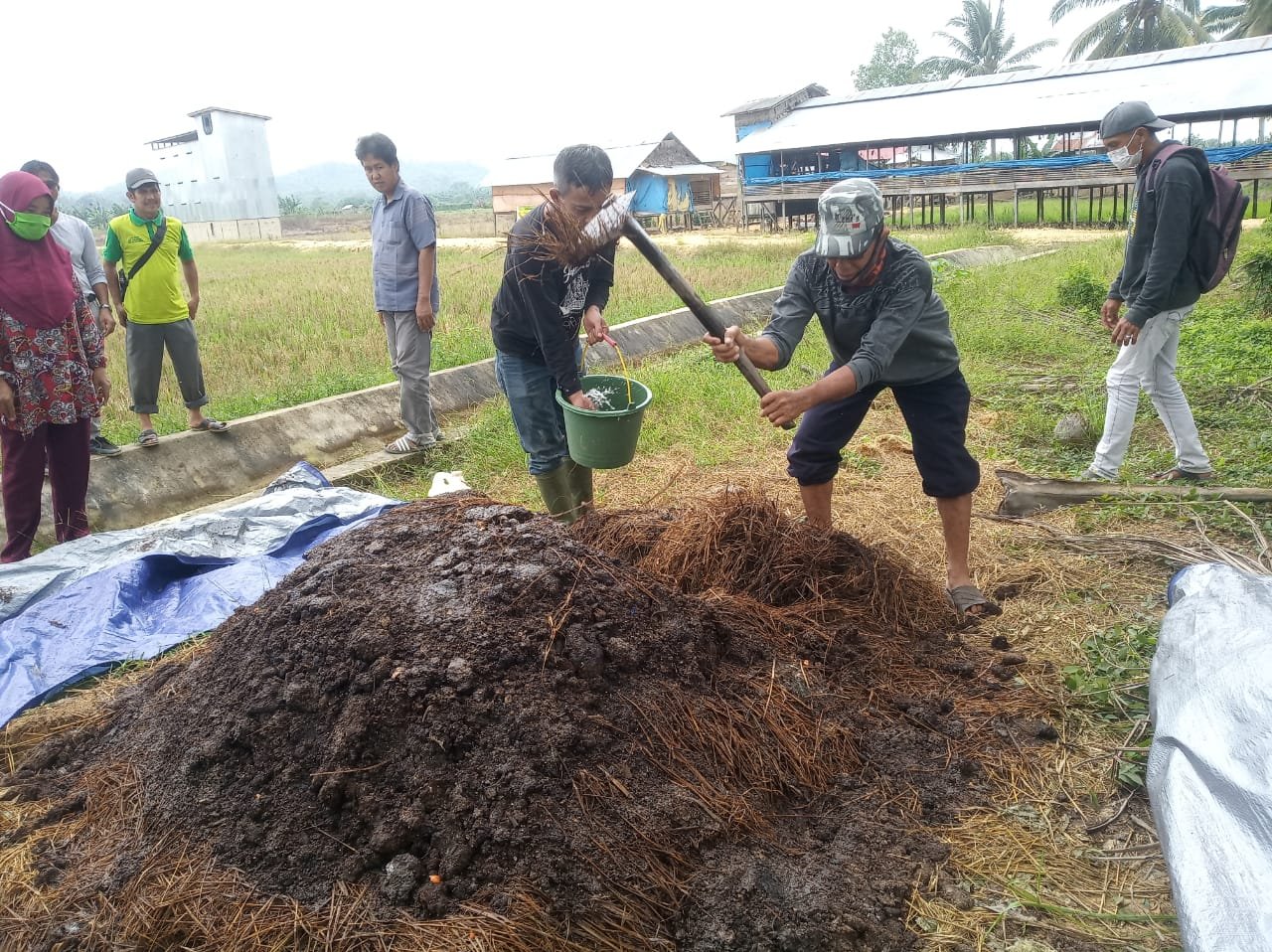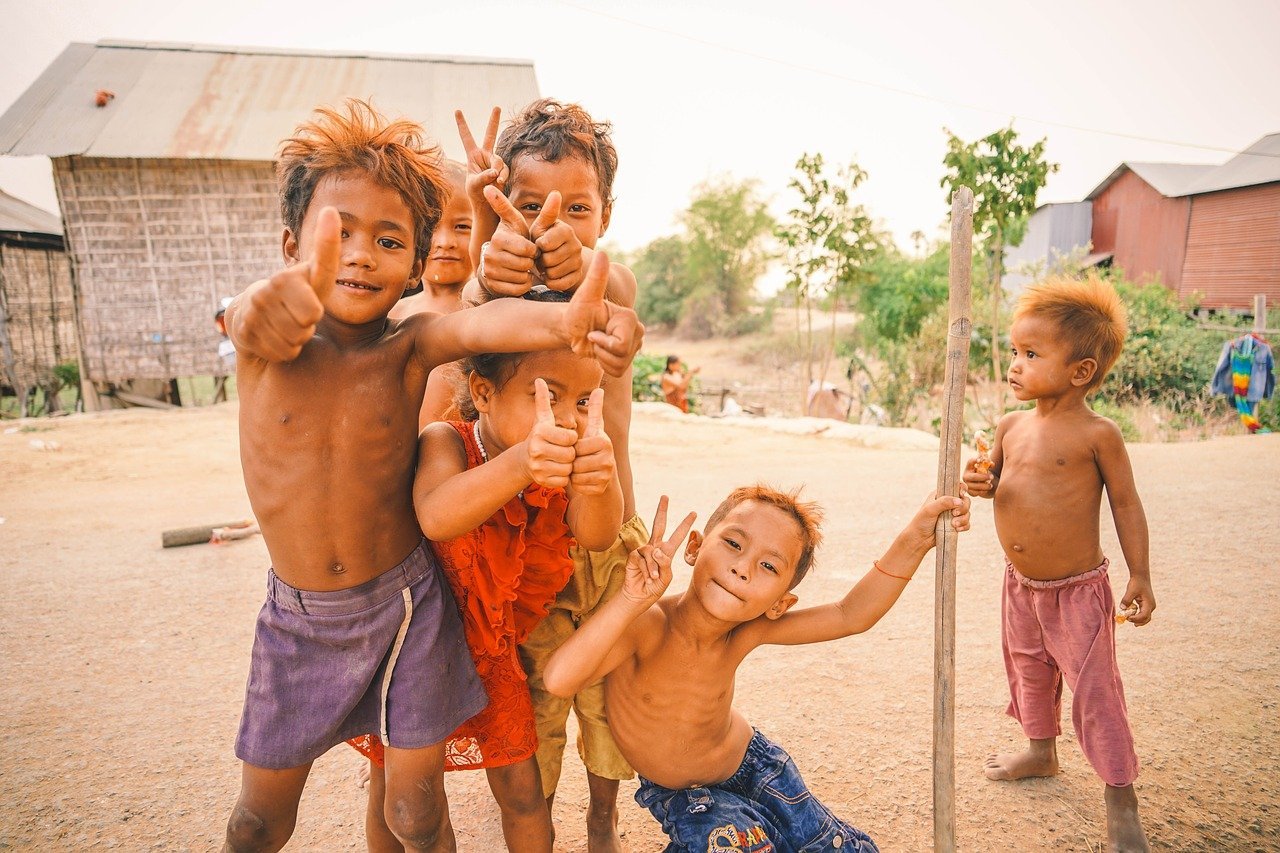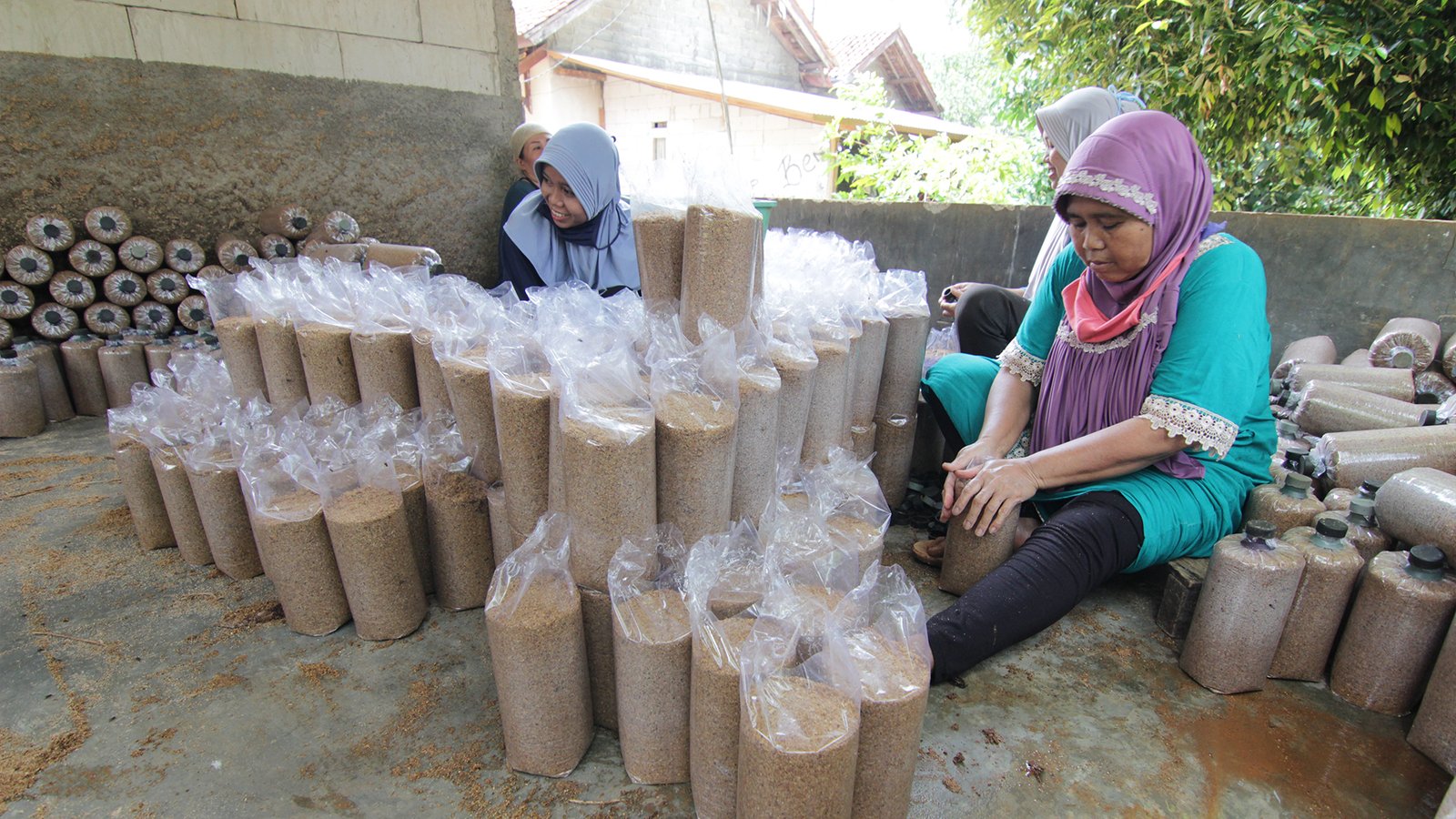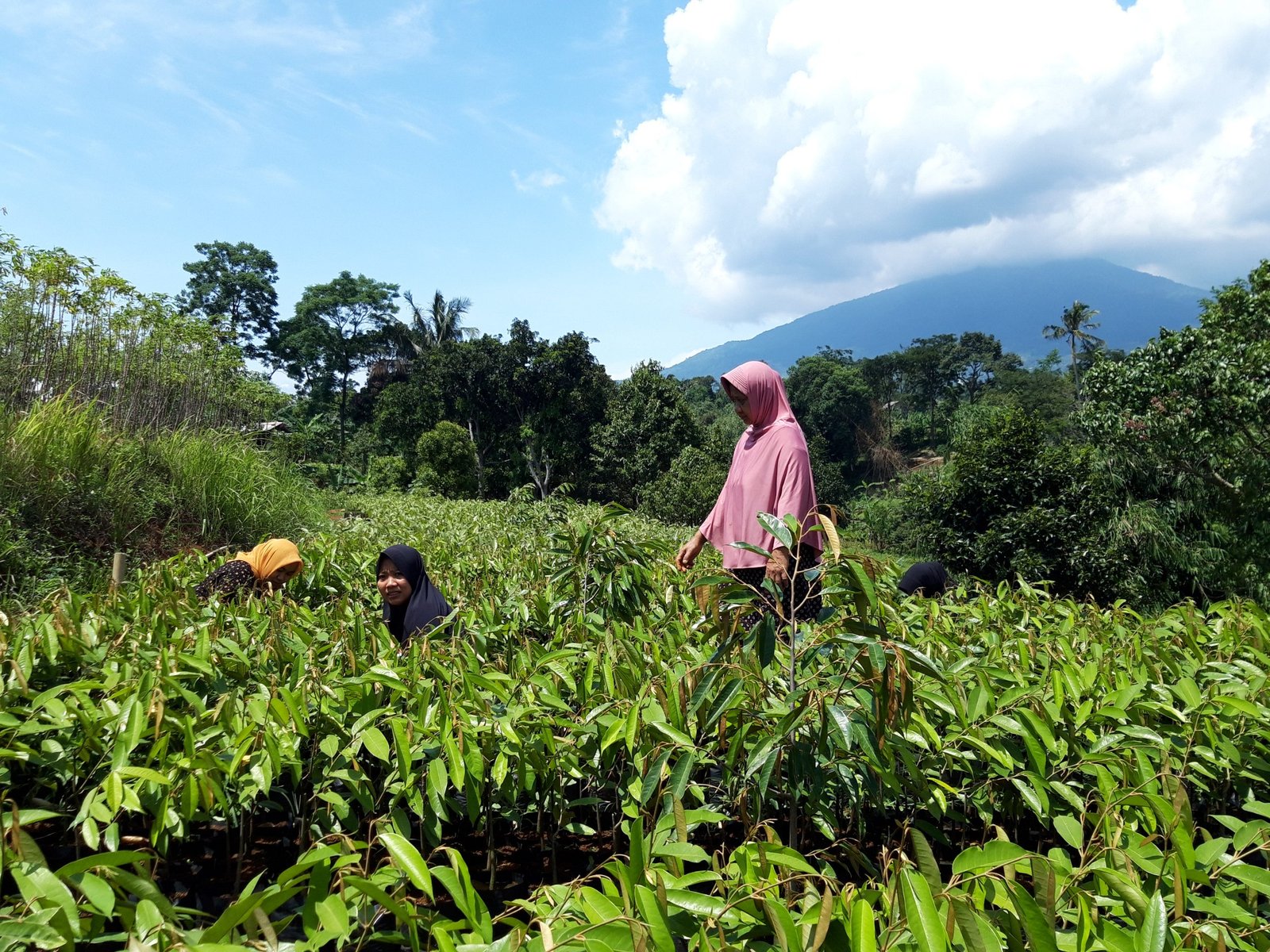Born and raised in Gunungkidul, Sugeng Handoko a young man from Nglanggeran Village, Patuk District, Gunungkidul Regency was able to change the face of his homeland which was once famous for dry areas, now turned 180 degrees into an ecotourism village visited by many tourists.
He revealed, there are 3 major stages he did in running and developing tourism in Nglanggeran Village.
“The first is the stage of recognizing potential, the second stage of processing human resources, we need 3 to 4 years to prepare the community to move. The third stage is to collaborate and cooperate with external parties, including building a digital identity,” he said.
He believes that the way out of Nglanggeran Village from poverty is through social entrepreneurship by developing ecotourism. According to him, in addition to being able to provide financial benefits, implementing social entrepreneurship is also able to feel inner satisfaction in society.
“So, I believe that when we make a system, and the system continues to be done until death it is still our charity,” he said.
Sugeng said, in the past, several problems made Gunungkidul a disadvantaged area. One of them is a community that often cuts down trees and takes stones to sell. He admitted that this had a direct impact on the damage to the natural environment in his region.
“Secondly, the high urbanization in our village is very high, young people leave their villages, not proud of their area. And the third is our desire to maintain but have an economic impact,” he said.
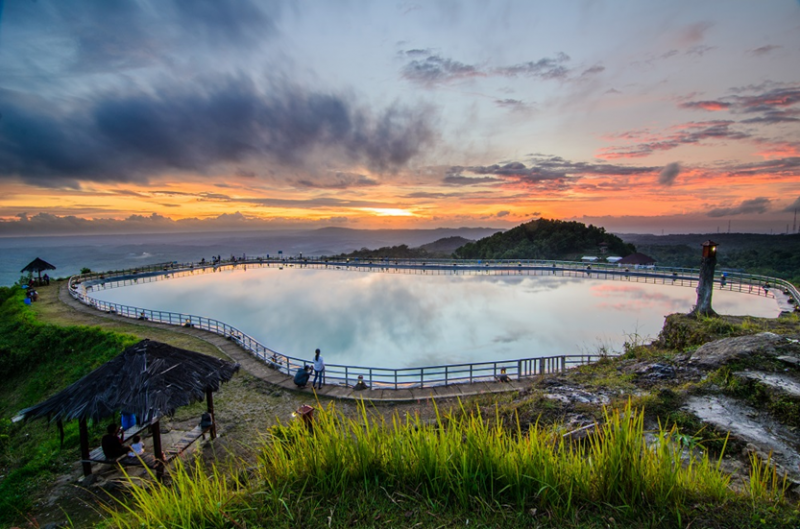
Those are some reasons that can convince him why ecotourism with 3 main elements such as education, conservation, and community empowerment can answer the problems in his village. As for the institution, Sugeng together with the Tourism Awareness Group (Pokdarwis) provides education to the public and tourists.
Sugeng explained, in the past, many tourists came to Gunungkidul just to track, go up the mountain, take photos, and then go home. He saw this as a business opportunity, therefore he began to seriously pursue starting by facilitating student intimate activities of around 50 to 80 people.
“For two days and one-night involving mothers preparing dinner, and it turned out that the results were many times over,” she said.
He admitted, since then he has become more serious about optimizing the tourism sector which prioritizes comfort for tourists when carrying out activities in his village.
“So initially it was not tourism development, the point is that people come there he can do activities. We are the ones who help prepare with many communities involved,” he said.
Regarding the need for capital for tourism development in his area, he is grateful that the mutual assistance of residents in the village is still very high. “So not all of it is nominated in rupiah. So there is community service, the tracking path is together, initially tripe the pedestal together, “he said.
Meanwhile, another way he does this is by being active in three things, such as the environment, youth, and community-based tourism.
“We try to get in the competition. So one of the ways we access funds is by participating in competitions. That’s there when you win, you get free promotion, then you get coaching money for development,” he explained.
The competitions he participated in were such as outstanding Taruna Corals, pioneer youth from the Ministry of Youth and Culture, and SOEs some independent entrepreneurs managed to achieve IDR 300 million which was used for capital.
“After competing, I tried to network there. Well, then the jury became our mentor,” he said.
Restrict tourists from visiting
Sugeng argues that to run the concept of sustainable tourism, the key is that all elements in the village must be happy such as the community, host, environment, and culture. According to him, if any one of the four elements is unhappy, it cannot be sustainable.
“We experienced the highest point of tourists in 2014, it was one year of 325,000 thousand tourists with a turnover that we managed to reach 1.4 billion. But the problem is also very big, garbage, vandalism, environment, noise, our society is uncomfortable”, he said, who has since started limiting the number of tourists from 2015 to the present.
The number of tourists that has dropped since 2014 is said by Sugeng does not affect economic income which increases.
“Only 135,000 visitors, but the turnover we manage can be 2.5 billion,” he said.
According to him, sustainable tourism is not based on a target tourist visit, but on the quality of tourists who come including the activities they do.
He also said that currently there is one village that is embraced to be invited to activities from what was originally only 3 hamlets.
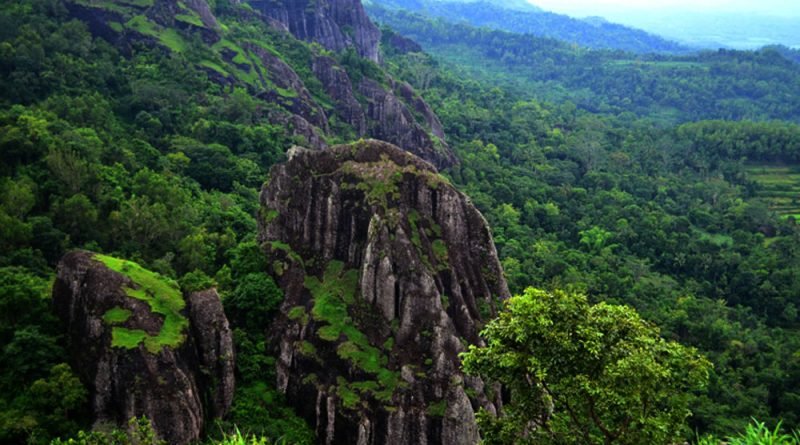
“The first way we increase the price, so the entrance ticket, if in the past the generation of alay children who bought tickets only wrote pictures of their names on the mountain littering. Now that is a segment, at least the selection already exists, so people who come to Nglanggeran already have a strong desire to get something different, not only photos, “he explained.
Another way it does this is by promotion that has been segmented.
“Currently we have targeted schools that have live-in activities, companies that have gathering activities, then more education,” he said.
In addition, it is also said that currently there have been many comparative study visits to Nglanggeran village and interest in buying community products is also great.
“Third, we tried to make a bond back again to Nglanggerang. So people who travel not only once but will come back again because there is a bond that we made. So we are principled, tourism for fraternity, tourism for learning. So the community will be comfortable, not full of many people, but have quality,” explained Sugeng.
Regarding the tourism village that is being launched by the government, he considered it a good program, but it must also be seen from all aspects of the village.
“So sometimes there is a misconception about moving tourism to the village which is a problem in my opinion. Because the village is an ecosystem, there is a community, there is a carrying capacity, there is an environment, local wisdom, culture will be a wrong approach when the orientation is to move tourism to the village,” he explained.
Sugeng thinks that so far tourism in Nglanggeran Village is just an addition, the community remains farmers, ranchers, and farmers, because he does not want to lose our village because of tourism.
“A village that depends on its economy from tourism will easily falter, say the issue of tourism down will be affected. But our tourism is only additional, although the addition is sometimes greater. So our community (team) has 140 people a week and only 4 days of activities in tourism, “he concluded.

